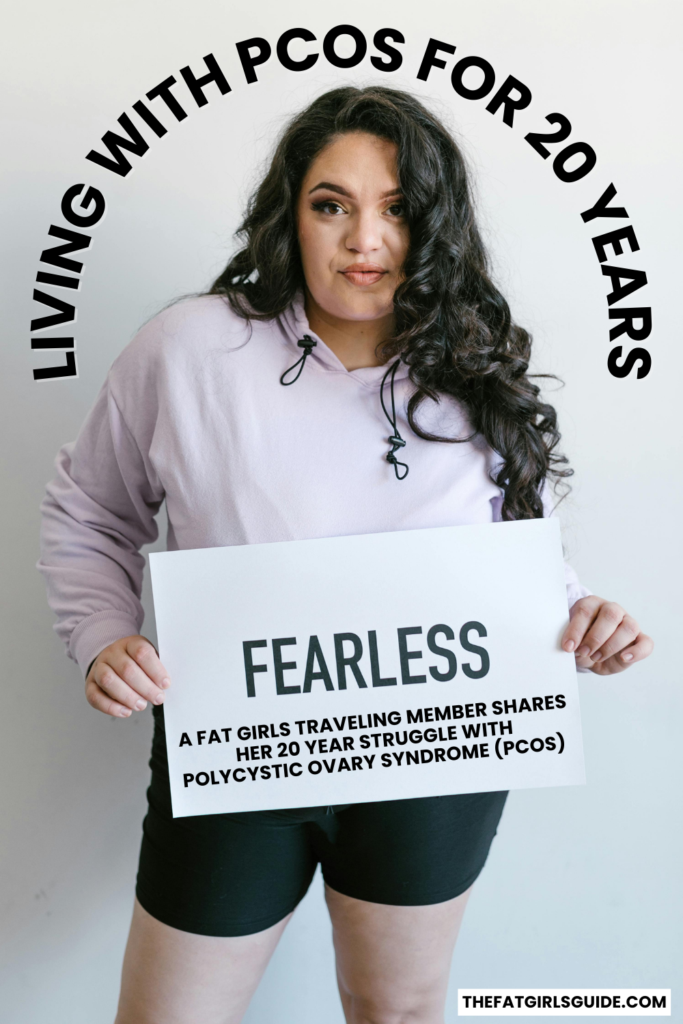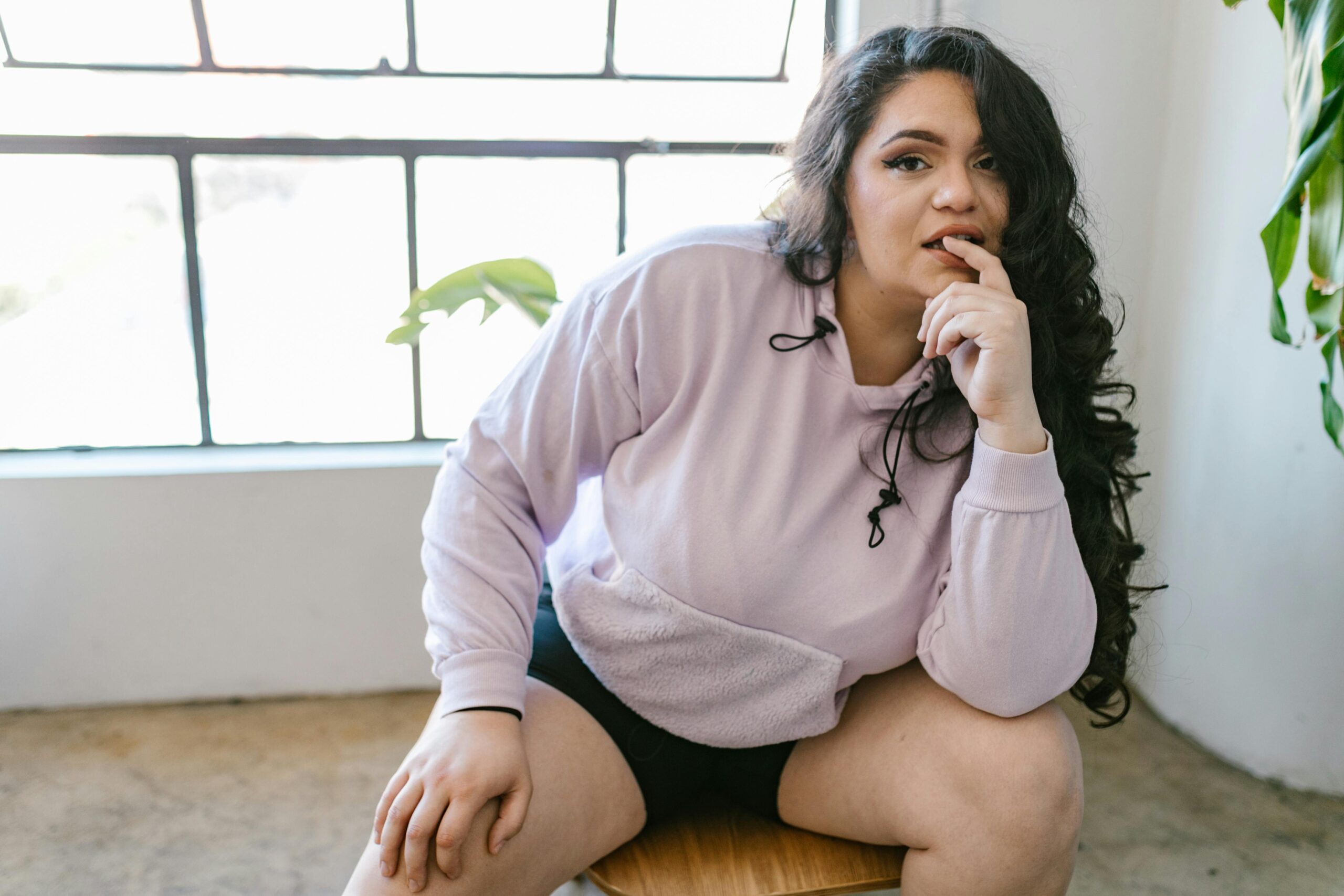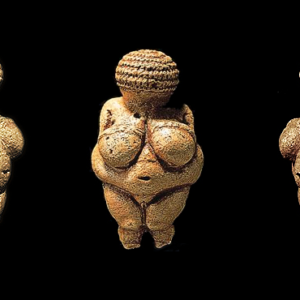Many of our community members live with PCOS and Jannet Torres Oropeza is sharing her experience living with PCOS for 20 years. Learn more about Polycystic ovary syndrome in our PCOS Series
Living with PCOS for over 20 years (that’s half of my life to be exact)—you’d think I’d have had plenty of time by now to research symptoms and find a treatment option that works best for my body. One might even wonder why I haven’t reversed this medical condition or why I’m still not cured. To put it in simple terms, no two bodies experience the exact same PCOS symptoms with the same level of intensity so it becomes difficult to diagnose and even more difficult to treat.
I got my first period at the age of 11 and the following two months were dry spells. My very traditional Mexican mother prayed on it and exhausted all her native healing and curandera capabilities before we finally paid a visit to my doctor. This very sophisticated white lab coat wearing professional stepped into the room, took one good look at my apple shaped figure, and stated “We talked about your kind at a medical conference a couple weeks ago. You’re overweight and because you let yourself get to this point you will never bear children and most likely never make it to your 30th birthday.” I received a proper medical diagnosis of PCOS, was explained that my menstrual cycles would become regular if I lost weight and took birth control. I hadn’t even processed what I’d just been told when my mother was already thunderously speaking in tongues to the medical staff about how no teen of hers was going to be given an excuse to have sex before marriage. Right, because that’s exactly what was on my mind!
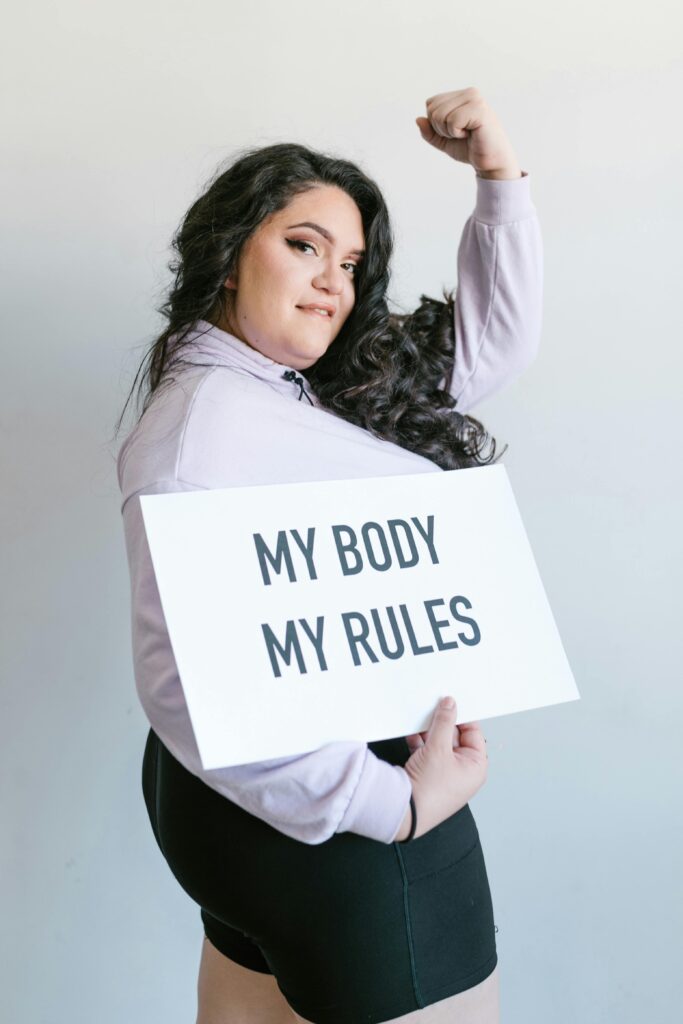
Throughout the next decade of my life, I spent a lot of energy in a love-hate relationship with my body for all the reasons I thought it was failing me. Without getting too into the triggers of many fat women, I developed unhealthy patterns with food, exercise, and humans based on a misguided and misinformed notion. On the upside, I also made it a personal goal to soak up every bit of new information related to PCOS. I was able to clearly list all my symptoms and when I became an adult I took matters into my own hands.
My PCOS symptoms: Rapid weight gain (I’m talking about periods of 10-15 lb. weight gains in 10 days), confirmed polycystic ovaries, menstrual cycles that came once every 2 years, pelvic pain, infertility that is still debatable and pending, insulin resistance, skin tags and visible darkened patches of skin as a result of insulin resistance, non-alcoholic fatty liver disease, cystic acne, high testosterone levels, high androgen levels, fatigue, anxiety, excessive body hair growth, excessive dry scalp, and now recently added the beginnings of male-patterned baldness and hair thinning. I’m almost certain I’m forgetting a few other symptoms, but you get the gist.
Behind my mother’s back I stepped foot into a Planned Parenthood for the first time at the age of 18. Insured and a virgin, I thought I was going to have to make up some elaborate story about how I was sexually active with multiple partners and needed birth control fast. Instead, the compassionate staff welcomed me with open arms and told me it was my human right to care for my reproductive system. It was also the first time anyone had ever told me they directly knew several women with PCOS who had become pregnant. My mind was blown!
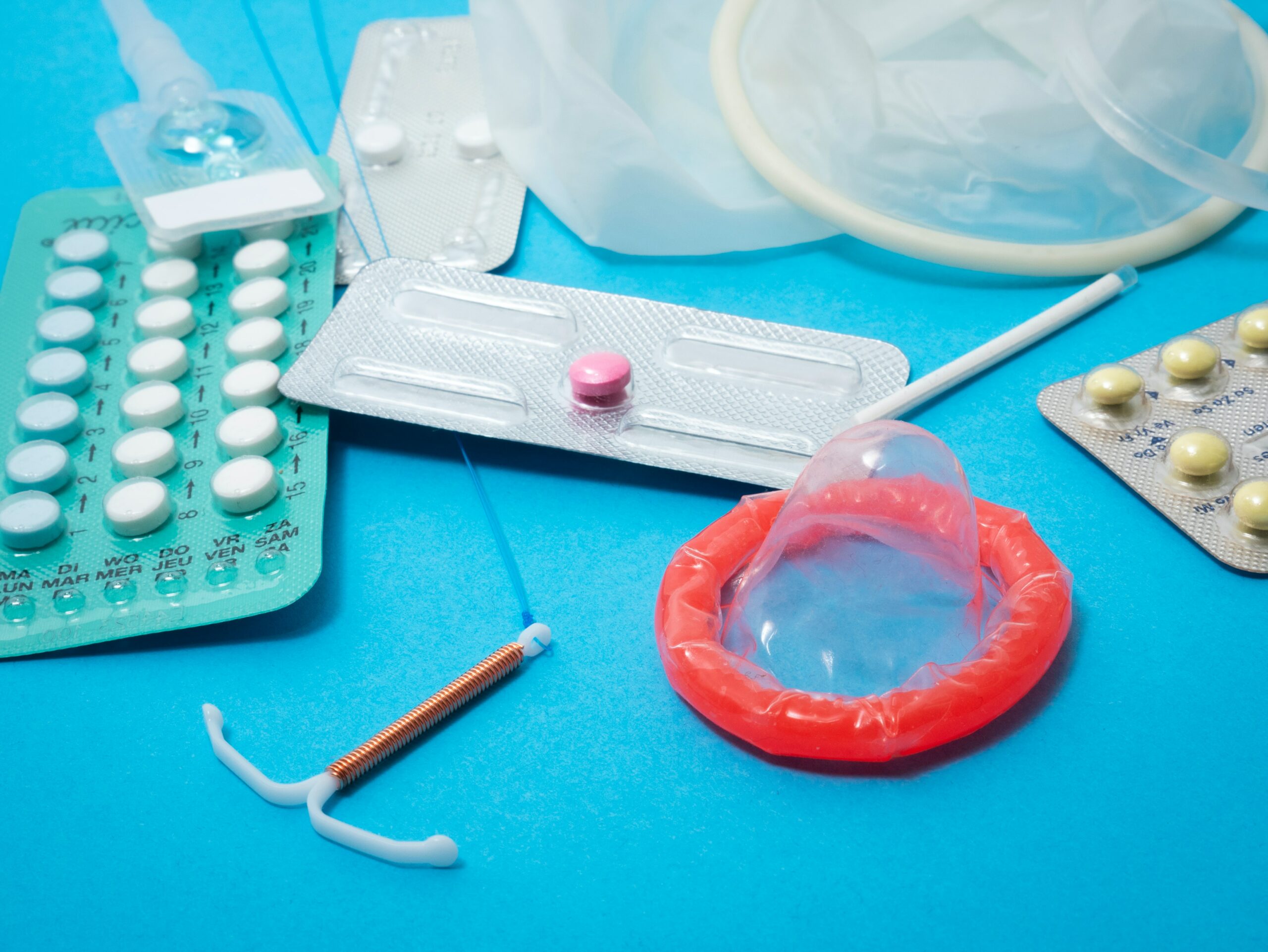
My twenties brought about a conflicting experience that fat women with PCOS often face. On one hand, we enter a path towards self-love to accept our bodies in all their stages and some of us even preach fat positivity. We become advocates of change for mainstream ideologies of the female body as we try to dismantle these discriminatory systems at play. On the other hand, we sometimes feel so desperate and so willing to change our bodies, to make them smaller, to make them live very restricted lives by giving into diet culture just to catch a break from our chronic and often very debilitating and disabling medical condition. A true Catch-22 situation.
We focus our attention on weight loss because it’s the treatment shoved down our throats. Statistically speaking, over 50% of women with PCOS get Type 2 Diabetes by the time they’re 40. This statistic will most likely be irrelevant tomorrow because it’s always changing. Want a baby? Fix your hormones by losing weight, they say.
You see, PCOS is an endocrine disorder. Anything you can think of that is an endocrine disruptor (chemicals, processed foods, pollution, etc.) will then mess with your hormones which then leads to reproductive and metabolic changes. In reality though, this is more than just a nutrition and exercise quick fix. It’s taking medication and tailoring your food consumption to manage the metabolic symptoms to prevent increased risk of cardiovascular diseases—I require a gluten-free, sugar free, low carb, vegan lifestyle with scheduled mealtimes (just between us, I can barely wake up at the same time every day). It’s switching all chemical household and beauty products to vegan/natural and medicating with hormone pills and bleeding for 35 straight days to regulate fluctuations in hormone levels that increase the risk of ovarian, uterine, and endometrial cancer. It’s anywhere from 5-10 vitamin supplements daily to calm systemic inflammation and hair loss/thinning. It’s medicating and curating a skincare routine to resolve cystic acne and excessive body hair growth. It’s finding the right concoction of painkillers to silence bursting cysts at 9am when you’re due for a very important work meeting and feel like you’ve been stabbed in the groin. And just when you think you’ve nailed it all down, a new symptom arises and your blood work shows little improvement. You’re back at square one.
At this rate, I’m not certain if I will ever be able to get pregnant. I don’t know if I’m willing to put myself (and possibly a future partner) through several rounds of IVF or if I’ll ever be able to afford a surrogate. I’ve learned to have those hard conversations with potential life partners about alternative options, but my decision to at least try still changes on a daily basis.
For now, I’m just happily enjoying my 31 trips around the sun—the PCOS way.

The PCOS Awareness Association and the CDC are credible sources of information on PCOS.
Here are some important things I’ve learned about PCOS in 20 years:
- PCOS is NOT curable or reversible. It is, however, manageable when you can identify symptoms and treat/eliminate them individually. Researchers are now able to classify at least 4 different types of PCOS which makes it easier to diagnose and control.
- PCOS does NOT guarantee infertility. Since menstrual cycles can be missed or irregular and women can ovulate with or without a period, fertility outcomes are on a case by case basis. Take appropriate precautions.
- Being fat does NOT cause PCOS. In fact, there is much evidence and research that suggests PCOS causes rapid weight gain in some women.
- I lost 100 pounds during my PCOS treatment journey and gained it back.
- Took me 15 years to find a doctor who would actually give me a transvaginal ultrasound to take pictures of my cysts and not just assume because of my weight
- #1 medication for PCOS is Metformin used to treat diabetes. It made me extremely sick even at its lowest dose so after 3-4 tries with it at various ages, my current doctor agreed it’s not for me.
